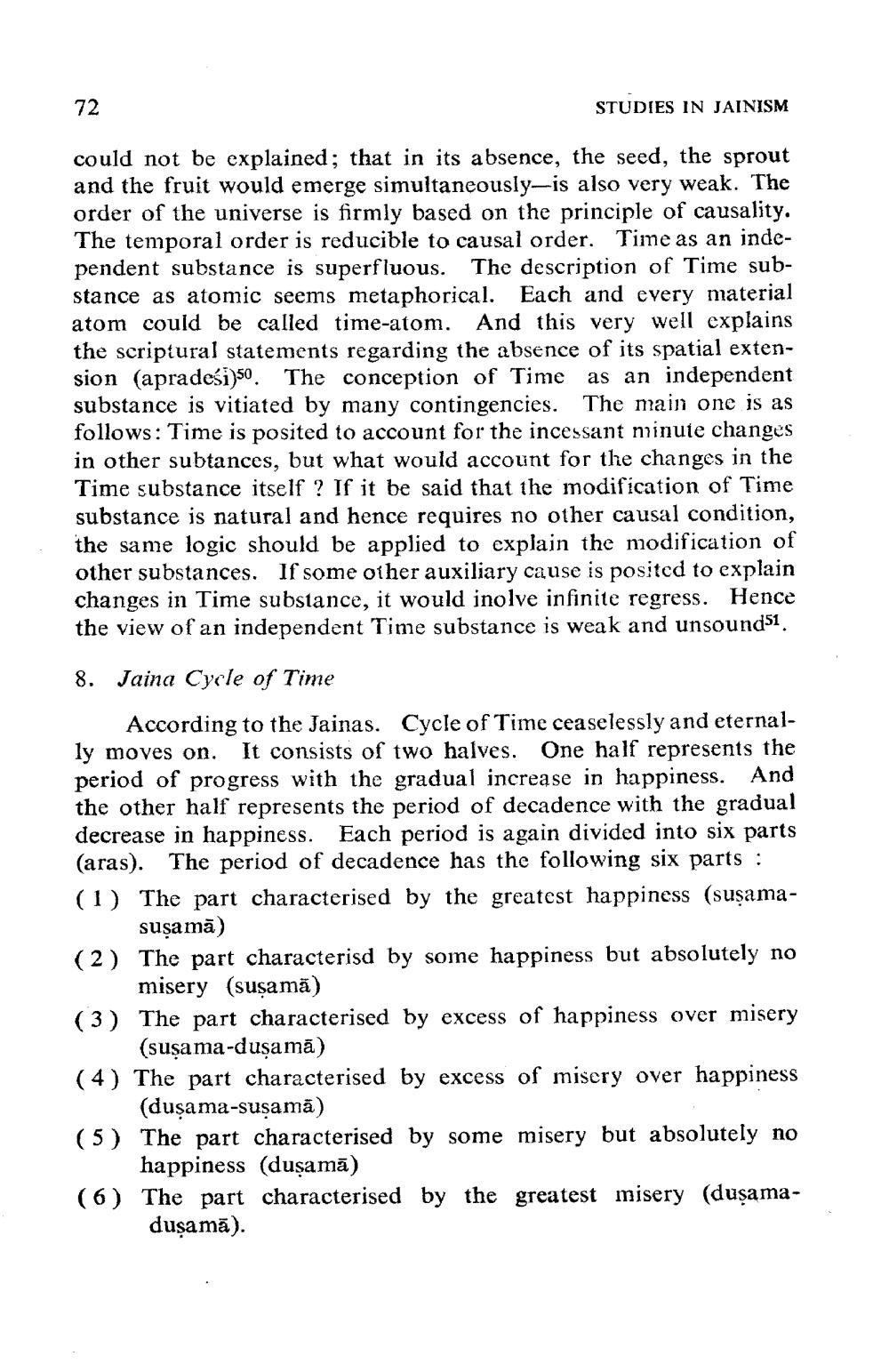________________
72
STUDIES IN JAINISM
could not be explained; that in its absence, the seed, the sprout and the fruit would emerge simultaneously-is also very weak. The order of the universe is firmly based on the principle of causality. The temporal order is reducible to causal order. Time as an independent substance is superfluous. The description of Time substance as atomic seems metaphorical. Each and every material atom could be called time-atom. And this very well explains the scriptural statements regarding the absence of its spatial extension (apradesi)50. The conception of Time as an independent substance is vitiated by many contingencies. The main one is as follows: Time is posited to account for the incessant minute changes in other subtances, but what would account for the changes in the Time substance itself ? If it be said that the modification of Time substance is natural and hence requires no other causal condition, the same logic should be applied to explain the modification of other substances. If some other auxiliary cause is posited to explain changes in Time substance, it would inolve infinite regress. Hence the view of an independent Time substance is weak and unsounds1.
8. Jaina Cycle of Time
According to the Jainas. Cycle of Time ceaselessly and eternally moves on. It consists of two halves. One half represents the period of progress with the gradual increase in happiness. And the other half represents the period of decadence with the gradual decrease in happiness. Each period is again divided into six parts (aras). The period of decadence has the following six parts : (1) The part characterised by the greatest happiness (susama
suşamā) (2) The part characterisd by some happiness but absolutely no
misery (susamā) (3) The part characterised by excess of happiness over misery
(suşama-dușamā) (4) The part characterised by excess of misery over happiness
(dusama-susamā) The part characterised by some misery but absolutely no
happiness (duşamā) (6) The part characterised by the greatest misery (dusama
duşamā).




